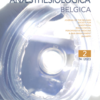Impact of the COVID-19 pandemic on healthcare workers in the frontline
COVID-19, pandemic, mental health, healthcare workers, survey
Published online: Jun 30 2023
Abstract
Background: Previous studies have shown that frontline healthcare workers (HCWs) have higher rates of pre-existing mental health problems and may be therefore at risk for worsening of mental health problems during the COVID-19 pandemic. This includes an increased prevalence for anxiety, depression, acute stress and post- traumatic stress disorders. The aim of this study was to assess the subjective and professional burden of the HCWs working in frontline departments of our hospital.
Objective: The aim was primarily to identify the psychological and professional impact of the COVID-19 pandemic on HCWs working in the frontline during the first two waves.
Design and setting: This was a single-centre multidisciplinary survey.
Methods: A printed survey was distributed to all HCWs (N=240) working in the intensive care unit and emergency department during the first and second COVID-19 outbreak. We evaluated the subjective and professional burden using 4-point Likert scale questions. Three-group comparisons based on years of work experience were made using Kruskal-Wallis tests. Comparisons per participant between two successive waves were made using Wilcoxon signed rank tests.
Results: A total number of 171 HCWs (71.3%) participated in the survey. Participants mainly feared infecting their family and friends. A majority of the participants showed a high motivation working in the COVID- zone. More than half of the participants reported that their quality of sleep was unaffected by the pandemic. Despite a higher workload, work performance and interactions with colleagues were not negatively affected by the pandemic. No significant difference was found based on years of work experience. Participants had an overall decrease in personal impact during the second wave. However, work motivation decreased (p<0.001). Participants felt better protected by the offered equipment (p=0.004), but felt less appreciated (p=0.01).
Conclusions: The pandemic appeared to have affected the subjective and professional burden of our participants. However, they were not as severely impacted as HCWs in some other studies. Acquired knowledge should be utilized in developing preventive and interventional strategies to support HCWs affected by the COVID-19 pandemic and potential pandemics in the future.
